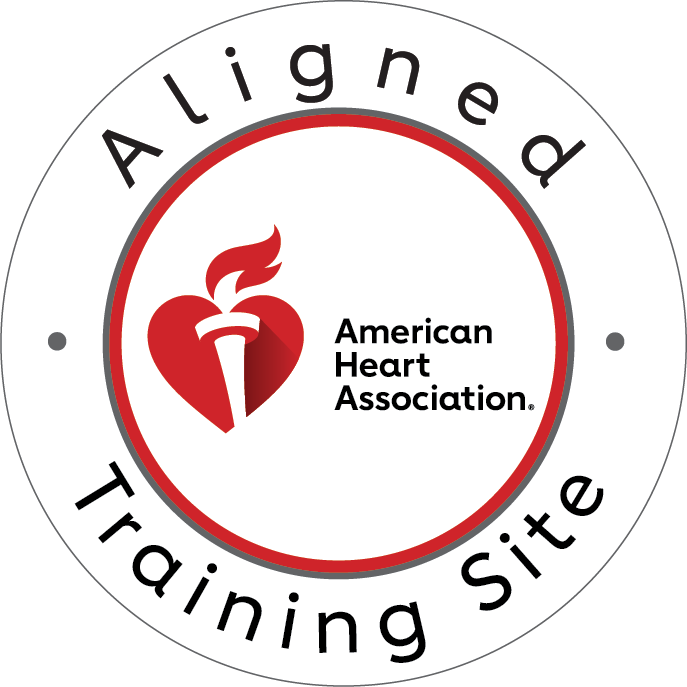In the fast-paced environment of Nashville hospitals, where every second counts, the ability to respond swiftly and effectively to cardiac emergencies is paramount. For healthcare professionals, from nurses to physicians, mastering Cardiopulmonary Resuscitation (CPR) isn’t just a box to check—it’s a critical skill that can mean the difference between life and death for their patients.
Enter CPR Nashville, a trusted American Heart Association training site dedicated to equipping healthcare workers with the knowledge and skills needed to save lives. In Nashville’s bustling healthcare landscape, where the demand for skilled responders is constant, the importance of ongoing CPR practice cannot be overstated.
This article delves into the value of ongoing CPR practice for healthcare professionals in Nashville hospitals. From the training room to the triage, we’ll explore how regular practice and skills refinement contribute to improved patient outcomes, heightened confidence, and a culture of preparedness among healthcare teams. Through the lens of CPR Nashville, renowned for its stress-free and hands-on training approach, we’ll uncover the journey from initial certification to continuous skill maintenance, highlighting the transformative impact on patient care in Nashville hospitals. Join us as we delve into the critical role of ongoing CPR practice in the heart of Music City’s healthcare landscape.
The Critical Role of CPR in Hospital Settings
In the high-stakes environment of hospital settings, CPR stands as a cornerstone of emergency medical care. When a patient experiences cardiac arrest or other life-threatening events, healthcare professionals must spring into action with rapid and proficient CPR techniques to maintain blood flow and oxygenation until further interventions can be administered.
Nashville hospitals, like their counterparts across the globe, face the constant challenge of providing timely and effective CPR in critical situations. Whether in the emergency department, intensive care unit, or general wards, healthcare professionals must be prepared to respond to cardiac emergencies at a moment’s notice.
The importance of CPR proficiency in hospital settings extends beyond saving individual lives—it impacts overall patient outcomes, hospital performance metrics, and the reputation of healthcare institutions. Hospitals with highly skilled CPR teams are better equipped to handle emergencies, minimize adverse events, and provide a higher standard of care to their patients.
In Nashville, where world-class healthcare facilities abound, the demand for skilled CPR practitioners is ever-present. Healthcare professionals in Nashville hospitals must possess the knowledge, skills, and confidence needed to perform CPR effectively, regardless of their role or specialty.
The Continuum of CPR Training
CPR training doesn’t end with initial certification; rather, it represents the beginning of a lifelong journey of skill development and refinement. In Nashville hospitals, where the demand for high-quality CPR is constant, healthcare professionals must engage in ongoing practice to maintain proficiency and readiness.
The continuum of CPR training encompasses several key stages:
- Initial Certification: Healthcare professionals undergo comprehensive training to obtain their initial CPR certification. This training covers essential CPR techniques, including chest compressions, rescue breaths, and the use of automated external defibrillators (AEDs). CPR Nashville provides top-notch instruction in these foundational skills, ensuring that healthcare workers are well-prepared to respond to cardiac emergencies.
- Skill Refinement: Once certified, healthcare professionals must actively engage in skill refinement to maintain their CPR proficiency. Regular practice sessions, hands-on simulations, and refresher courses are essential components of skill refinement. CPR Nashville offers opportunities for ongoing practice and skills development, enabling healthcare professionals to stay sharp and confident in their abilities.
- Advanced Training: In addition to basic CPR certification, healthcare professionals may pursue advanced training in areas such as Advanced Cardiovascular Life Support (ACLS) and Pediatric Advanced Life Support (PALS). These advanced courses build upon the foundational skills learned in CPR training, providing healthcare professionals with specialized knowledge and techniques for managing complex cardiac emergencies.
- Continuing Education: CPR guidelines and protocols evolve as new research and best practices emerge. Healthcare professionals must stay informed about these updates through continuing education and professional development activities. CPR Nashville offers courses that align with the latest guidelines and recommendations, ensuring that healthcare workers in Nashville hospitals remain up-to-date on the most effective CPR techniques.
By engaging in the continuum of CPR training, healthcare professionals in Nashville hospitals can enhance their readiness to respond to cardiac emergencies and improve patient outcomes. In the next section, we’ll explore the specific course offerings at CPR Nashville and how they support ongoing CPR practice for healthcare professionals in Nashville.
The Transition from the Training Room to Triage
The journey from the training room to the triage setting represents a critical transition for healthcare professionals in Nashville. While CPR training provides foundational knowledge and skills, it’s the real-world application of those skills in high-pressure environments that truly test their efficacy.
In Nashville hospitals, where the pace can be fast and the stakes high, healthcare professionals must seamlessly transition from the controlled environment of the training room to the unpredictable reality of the triage setting. This transition requires more than just technical proficiency—it demands adaptability, decisiveness, and effective teamwork.
For healthcare professionals who have undergone CPR training at CPR Nashville, this transition is facilitated by the hands-on and scenario-based approach of our courses. Participants are exposed to realistic simulations that simulate the chaos and urgency of a real-life cardiac emergency, preparing them for the challenges they may encounter in the triage setting.
By practicing CPR techniques in a simulated environment, healthcare professionals develop muscle memory and mental preparedness, enabling them to react instinctively and decisively when faced with a cardiac emergency. This hands-on approach instills confidence and readiness, empowering healthcare teams to work together cohesively and efficiently to deliver life-saving care.
The value of ongoing CPR practice becomes evident in the triage setting, where split-second decisions can have life-altering consequences. Healthcare professionals who engage in regular practice and skills refinement are better equipped to respond effectively to cardiac emergencies, resulting in improved patient outcomes and a higher standard of care.
Conclusion
In Nashville hospitals, where every moment counts, the value of ongoing CPR practice cannot be overstated. From the initial certification provided by CPR Nashville to the real-world application in the triage setting, healthcare professionals rely on their CPR skills to save lives and improve patient outcomes.
CPR Nashville plays a pivotal role in equipping healthcare professionals with the knowledge, skills, and confidence needed to excel in their roles. Through comprehensive courses, hands-on instruction, and flexible scheduling options, CPR Nashville ensures that healthcare workers in Nashville have access to the training they need to maintain their CPR proficiency and readiness.
As healthcare professionals transition from the training room to the triage setting, the impact of ongoing CPR practice becomes evident. Through regular practice and skills refinement, healthcare teams develop the muscle memory and mental preparedness needed to respond effectively to cardiac emergencies, resulting in improved patient outcomes and a higher standard of care.
Take Action: Enroll Your CPR Certification in CPR Nashville
Don’t wait until it’s too late—take the first step towards CPR proficiency and readiness by enrolling in CPR certification in Nashville today. Our hands-on instruction, flexible scheduling options, and comprehensive courses ensure that you receive the highest quality training available.
With CPR certification from CPR Nashville, you’ll not only enhance your skills and confidence but also contribute to a culture of preparedness and excellence in Nashville hospitals. Join us in our commitment to saving lives and making a difference in the heart of Music City’s healthcare landscape. Enroll your CPR certification in CPR Nashville now and become a vital part of the healthcare community in Nashville.





